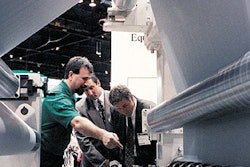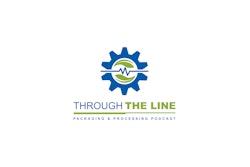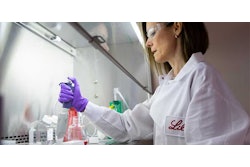CAPDM is the voice for the pharmacy distribution industry in Canada, with members including manufacturers, wholesalers, distributors, pharmacy chains, and service providers.
Reynolds' observations stem from moderating the "Manufacturer-To-Pharmacy Regulatory Panel" at the 6th Annual Cold Chain Management and Temperature Control Summit in Toronto in late February.
The growing biopharmaceutical sector "has already been a boon to companies that specialize in cold chain packaging supplies," he says, including Sensitech, Thermosafe from Tegrant, TCP, Jones Packaging, Richards Packaging, and others. He says it also has been a boon to those who transport them in specialty vehicles from companies such as UPS, ATS, TransX, Skelton, Meyers, World Courier, and other carriers.
Excursions and 'last-mile' distribution
Another issue, Reynolds says, concerns excursions in temperature-either higher or lower than what's on the product label-for a very short period that doesn't damage the product. "We are not talking here about biologic," he says. "The question becomes for how long and to what extent is that excursion? Everyone is aware that there are going to be excursions in transport."
Discussion continues as to whether there is going to be more attention paid within the near-term by manufacturers, by wholesalers and distributors, and by governments to ensure that the temperature of a product during transport remains stable and stays within the acceptable range listed on its label.
Reynolds says, "Temperatures are of particular concern during the last leg of the journey, called 'last-mile' distribution, where people are saying, 'What's the good of doing 98 percent due diligence if we forget about the last two percent?' Care needs to be taken to make sure that the distributor or manufacturer has a Quality Assurance agreement with its carrier that also includes ensuring product integrity during that last mile. Different carriers will perhaps find different ways to do that, but that is not something that has always been built into QA agreements, and we will start to see that happening more often."
From a regulatory standpoint, Canada's equivalent of the U.S. Food and Drug Administration is the Health Canada Ministry. Reynolds explains, "It has an inspectorate that does periodic inspections of the manufacturing sites and of distributors to ensure that proper temperatures and storage conditions are being met. They look over the documentation regarding transport. They have not been inspecting transportation modes up to this point but they want to be assured that there are QA agreements between, say, a wholesaler and its trucking company, that cover the safety of the product."
He says there's a growing issue in the U.S. and Canada for many wholesalers and manufacturers about whether or not to include protective temperature-control packaging more often or not, or to do more temperature monitoring within warehouses and transportation vehicles. A third option is to do both-provide protective safe packaging and conduct temperature mapping in the vehicles and in the storage areas of distributors and manufacturers.
Reynolds explains, "The Health Canada Inspectorate wants to know that you have temperature control inside the warehouse, and out through the shipping door. They may want to know the average temperature when you receive the products as a wholesaler and how long the products reside there before they are moved inside to take their place on the shelf. Perhaps they will ask for any data that relates to the temperatures at the doors. Wholesalers now provide that. It's something they didn't used to do."
Overall, these products can be solids, liquids, ointments, and other forms, with gel caps and tablets the most prevalent. Medical devices and nutraceuticals are also subject to inspection, Reynolds says, although "it's a little less rigorous," he admits. "Medical devices do have to be inspected, and nutraceuticals fall under the regulations for good manufacturing practices, which include good distribution practices," he adds.
Most products fall into the familiar 2ºC to 8ºC range, but Reynolds adds that there is a growing awareness about ensuring products at ambient temperatures in the 15ºC to 25ºC range. "Sometimes those products are forgotten because the lower-temperature-sensitive products are perhaps more subject to deterioration if there is an excursion," he says. "It's fair to say the ambient products are more resilient, but one doesn't want to take that for granted."
Based on geography, it makes sense that shipments to or within Canada face different temperature and humidity challenges than those in some areas within the U.S. That said, the two countries share many of the same challenges. Ultimately, the goal is to ensure that the product retains efficacy and is maintained at the appropriate temperature range throughout the supply chain, especially through that last mile to the patient. [HCP]
--By Jim Butschli, Editor
Reynolds' observations stem from moderating the "Manufacturer-To-Pharmacy Regulatory Panel" at the 6th Annual Cold Chain Management and Temperature Control Summit in Toronto in late February.
The growing biopharmaceutical sector "has already been a boon to companies that specialize in cold chain packaging supplies," he says, including Sensitech, Thermosafe from Tegrant, TCP, Jones Packaging, Richards Packaging, and others. He says it also has been a boon to those who transport them in specialty vehicles from companies such as UPS, ATS, TransX, Skelton, Meyers, World Courier, and other carriers.
Excursions and 'last-mile' distribution
Another issue, Reynolds says, concerns excursions in temperature-either higher or lower than what's on the product label-for a very short period that doesn't damage the product. "We are not talking here about biologic," he says. "The question becomes for how long and to what extent is that excursion? Everyone is aware that there are going to be excursions in transport."
Discussion continues as to whether there is going to be more attention paid within the near-term by manufacturers, by wholesalers and distributors, and by governments to ensure that the temperature of a product during transport remains stable and stays within the acceptable range listed on its label.
Reynolds says, "Temperatures are of particular concern during the last leg of the journey, called 'last-mile' distribution, where people are saying, 'What's the good of doing 98 percent due diligence if we forget about the last two percent?' Care needs to be taken to make sure that the distributor or manufacturer has a Quality Assurance agreement with its carrier that also includes ensuring product integrity during that last mile. Different carriers will perhaps find different ways to do that, but that is not something that has always been built into QA agreements, and we will start to see that happening more often."
From a regulatory standpoint, Canada's equivalent of the U.S. Food and Drug Administration is the Health Canada Ministry. Reynolds explains, "It has an inspectorate that does periodic inspections of the manufacturing sites and of distributors to ensure that proper temperatures and storage conditions are being met. They look over the documentation regarding transport. They have not been inspecting transportation modes up to this point but they want to be assured that there are QA agreements between, say, a wholesaler and its trucking company, that cover the safety of the product."
He says there's a growing issue in the U.S. and Canada for many wholesalers and manufacturers about whether or not to include protective temperature-control packaging more often or not, or to do more temperature monitoring within warehouses and transportation vehicles. A third option is to do both-provide protective safe packaging and conduct temperature mapping in the vehicles and in the storage areas of distributors and manufacturers.
Reynolds explains, "The Health Canada Inspectorate wants to know that you have temperature control inside the warehouse, and out through the shipping door. They may want to know the average temperature when you receive the products as a wholesaler and how long the products reside there before they are moved inside to take their place on the shelf. Perhaps they will ask for any data that relates to the temperatures at the doors. Wholesalers now provide that. It's something they didn't used to do."
Overall, these products can be solids, liquids, ointments, and other forms, with gel caps and tablets the most prevalent. Medical devices and nutraceuticals are also subject to inspection, Reynolds says, although "it's a little less rigorous," he admits. "Medical devices do have to be inspected, and nutraceuticals fall under the regulations for good manufacturing practices, which include good distribution practices," he adds.
Most products fall into the familiar 2ºC to 8ºC range, but Reynolds adds that there is a growing awareness about ensuring products at ambient temperatures in the 15ºC to 25ºC range. "Sometimes those products are forgotten because the lower-temperature-sensitive products are perhaps more subject to deterioration if there is an excursion," he says. "It's fair to say the ambient products are more resilient, but one doesn't want to take that for granted."
Based on geography, it makes sense that shipments to or within Canada face different temperature and humidity challenges than those in some areas within the U.S. That said, the two countries share many of the same challenges. Ultimately, the goal is to ensure that the product retains efficacy and is maintained at the appropriate temperature range throughout the supply chain, especially through that last mile to the patient. [HCP]
--By Jim Butschli, Editor



















